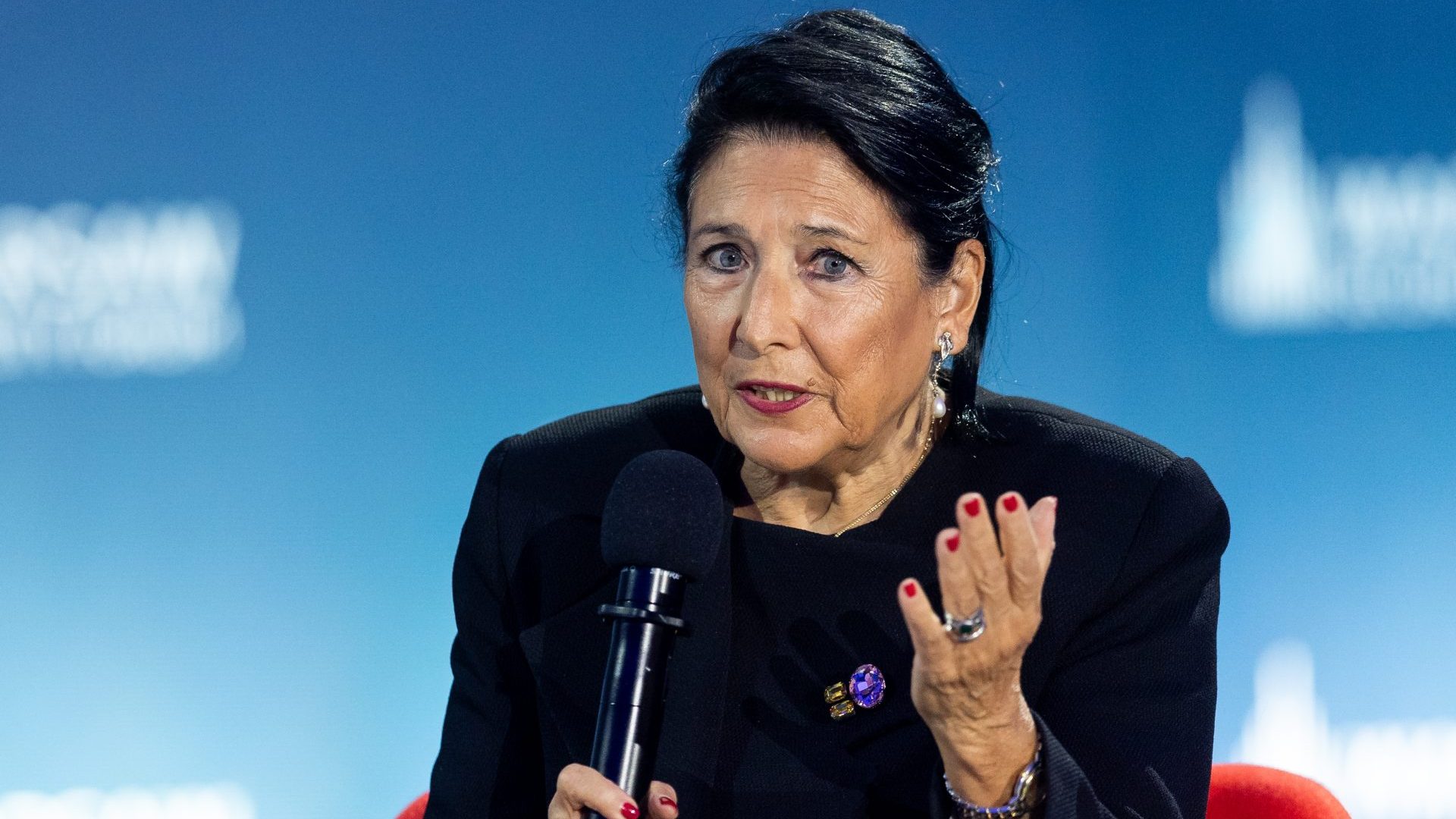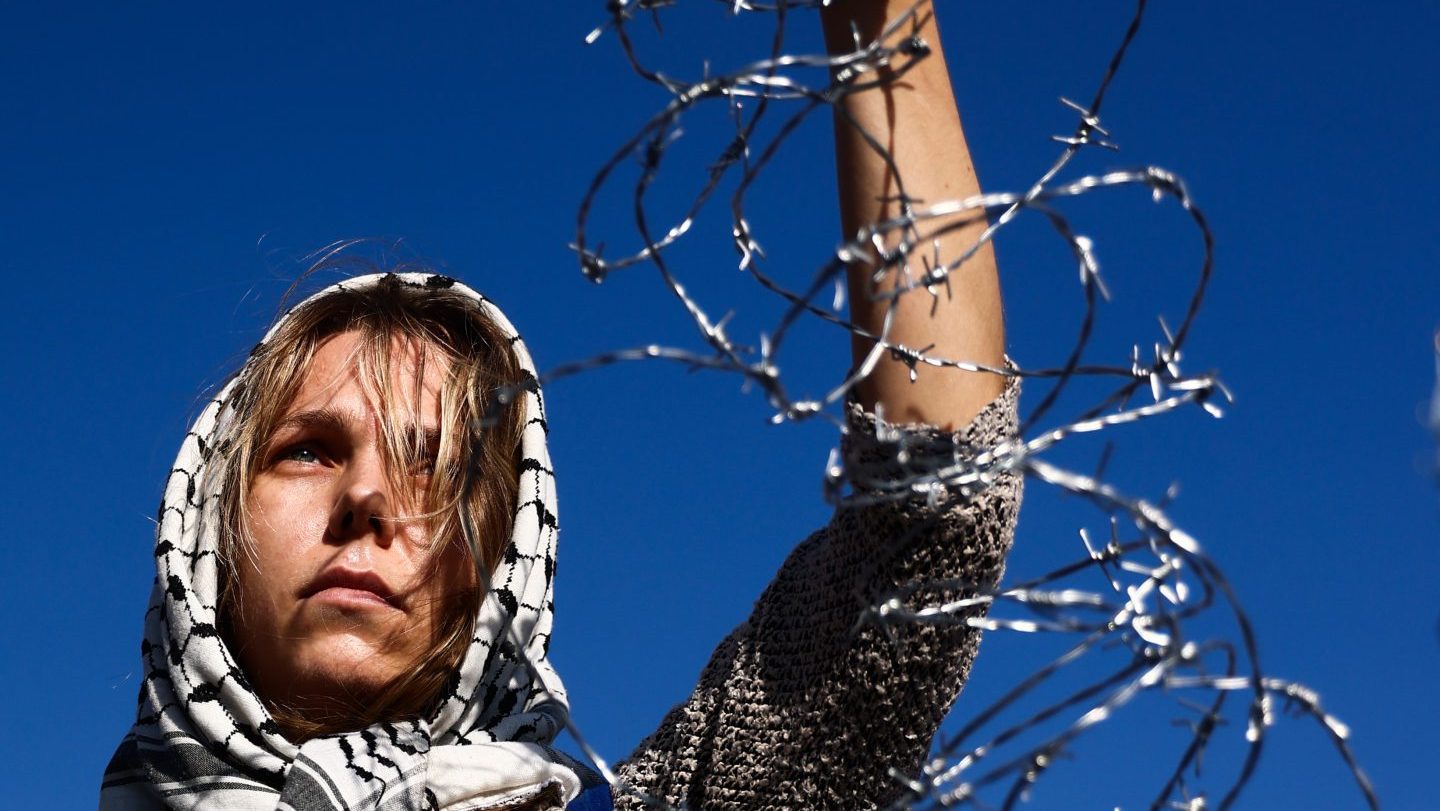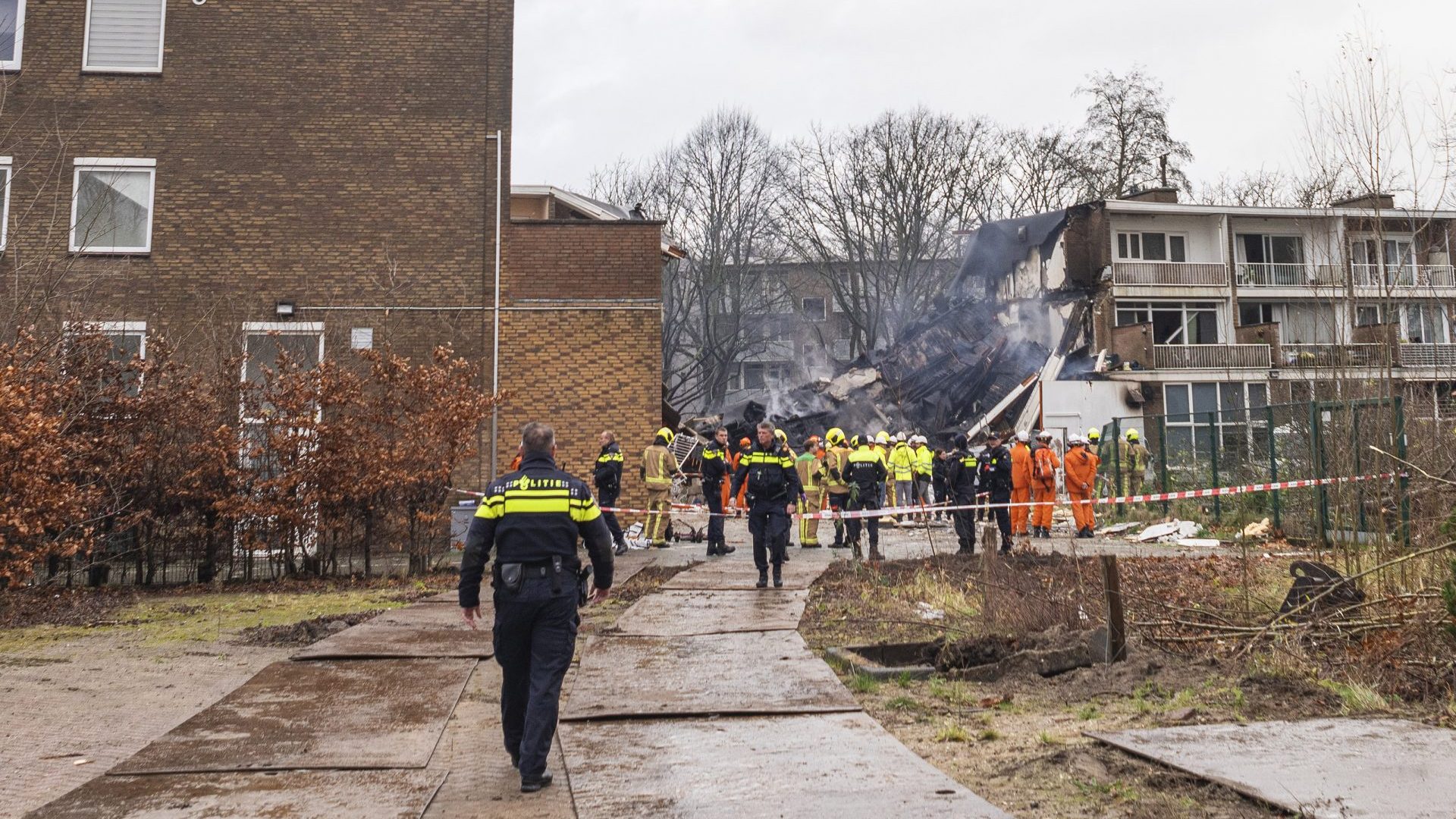Thousands of Georgians stood outside their country’s stately presidential palace on December 29 under a crisp winter sun, awaiting the appearance of the small French-born woman who has become an unlikely icon in their fight to join the EU.
During the crisis following Georgia’s contested October parliamentary elections, president Salome Zourabichvili has been the country’s most prominent voice of dissent. When the ruling Georgian Dream party, led by the billionaire oligarch Bidzina Ivanishvili, halted the country’s longstanding bid for EU accession on November 28, she became the mouthpiece of the country’s pro-European opposition.
Throughout the protests that have engulfed Georgia, Zourabichvili has defended incarcerated protesters, shaken hands with the likes of Emmanuel Macron and Donald Trump, and even personally pushed her way through the chaos of the protests to go face-to-face with the riot police.
Yet with Zourabichvili’s term set to expire, the crowd had gathered at the presidential palace to await her next move: would she turn over her largely ceremonial position peacefully, or force the police to arrest her, as they had with nearly 500 protesters since the demonstrations began?
A few blocks away, in parliament, the ruling party was poised to complete its capture of the Georgian state. Following a 2017 constitutional amendment, for the first time Zourabichvili’s successor had been chosen by an electoral college rather than a popular vote.
With all four major opposition parties boycotting parliament, Ivanishvili’s hand-picked candidate, Mikheil Kavelashvili, a brutish far right firebrand who had a brief spell as a Manchester City footballer, had sailed through a perfunctory vote on December 15.
As Kavelashvili, in his first act as president, moved to approve a series of laws cracking down on protests, Zourabichvili emerged from the palace wearing a red blouse and white coat – the colours of the Georgian flag.
She had worn the same colours six years ago at her inauguration, when she herself had been Ivanishvili’s hand-picked candidate. The granddaughter of emigrés who escaped the Red Army in 1921, she began her career in the French foreign service, before joining the Georgian government and eventually renouncing her dual citizenship to run for president.
Zourabichvili spent her first years in office as a relative non-entity, but broke with her Georgian Dream backers in 2022 over their refusal to condemn Russia’s invasion of Ukraine. As the party passed Russian-style laws cracking down on foreign-funded NGOs and the LGBTQ community, Zourabichvili leaned into her role as Georgia’s pro-European voice.
To many Georgians, she proved herself by stepping up during the current crisis, when the inflated egos and factional rivalries in Georgia’s opposition parties left them floundering. On the morning of December 29, many hoped she would give the protests a final shot in the arm by making a defiant stand.
But when Zourabichvili took the stage, she announced that she would leave the palace and join the protesters. The crowd seemed to exhale with a mixture of disappointment and relief that she would live to fight another day.
Zourabichvili declared that new elections would come “very soon” and told opposition forces to prepare themselves. But as she slipped into the crowd amid chants of “gaumarjos!” – “victory!” – she left a sense of disorientation in her wake.
The supporters began to disperse, with some drifting toward the houses of parliament holding red cards to mock their new footballer president. Police soon swept in from a side street and arrested a group standing peacefully in front of the cathedral.
By mid-afternoon, only a handful of demonstrators remained, gathered stubbornly by the sparkling Christmas tree on parliament’s steps. I couldn’t help feeling that things had come full circle – that we had returned to the despair that blanketed Tbilisi in the days after the election and before the government’s dramatic pivot away from the EU.
A group of university students sat on a bench holding signs demanding new elections and the release of all political prisoners. We chatted for a few minutes, before the optimism that characterises Georgia’s opposition gave way to a weary contemplation.
“We’ve been out here for 32 days already,” one of them told me. “What’s better? What should we do?”
Victor Swezey is a Tbilisi-based independent journalist and Fulbright research fellow



